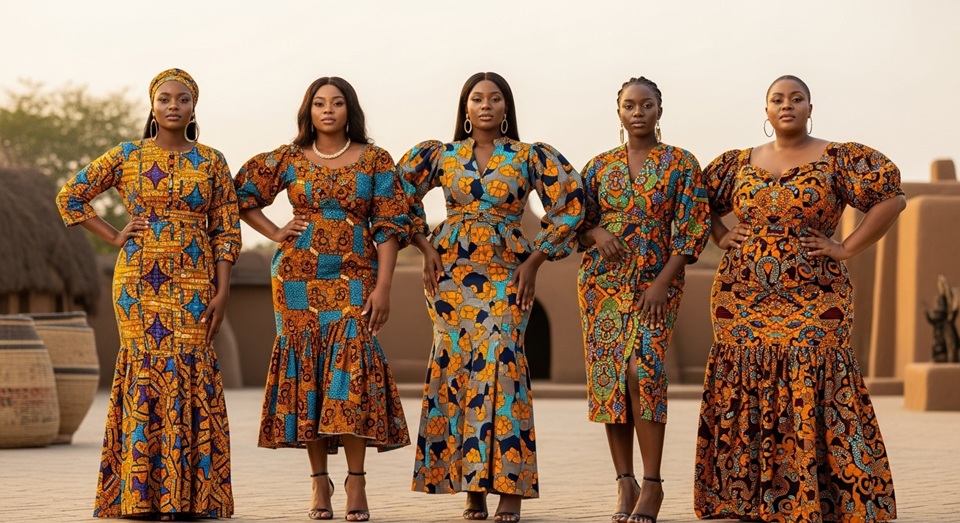Why African Fashion Is Taking Over the Runways
African fashion is no longer a niche—it’s a global force rewriting the rules of haute couture and redefining elegance on the world’s most prestigious runways. From Lagos to Paris, Nairobi to Milan, the vibrant colors, rich textures, and cultural stories embedded in African fashion are captivating audiences and reshaping the global fashion narrative. The African fashion runways are not just platforms for aesthetic expression; they are cultural megaphones, echoing centuries of heritage, resilience, and innovation.
In this article, we take a deep dive into why African fashion is dominating the catwalks, exploring the designers, trends, fabrics, and forces behind this movement, and what it means for the future of fashion.
The Global Spotlight Turns to Africa
Once overlooked in the global style dialogue, African fashion has become a focal point in fashion capitals like Paris, New York, and London. The shift is not accidental; it’s the result of decades of tireless creativity, storytelling, and cultural assertion.
African designers have been using fashion as a form of visual storytelling—one that weaves together tradition, politics, identity, and art. It’s this authenticity and depth that are attracting top fashion houses and media outlets to African fashion runways.
Like a vibrant mosaic of patterns and voices, African fashion doesn’t just occupy space—it commands attention.
Cultural Richness Woven Into Every Stitch
The Power of Fabric and Motif
One of the most defining characteristics of African fashion is its powerful use of fabric. Ankara, Kente, Kitenge, Aso Oke, Shweshwe, and Mudcloth—each textile carries generational meaning. These fabrics are not mere materials; they are history books made of threads and dyes.
-
Kente, for example, originates from Ghana and is historically associated with royalty and sacred ceremonies.
-
Ankara, known for its bold prints and bright colors, has become a versatile canvas for contemporary African designers.
Designers like Lisa Folawiyo, Kenneth Ize, and Thebe Magugu are elevating these textiles into luxury pieces that rival the silk and taffeta gowns of Paris and Milan.
African fashion isn’t just worn; it’s interpreted—like visual poetry in motion.
The Rise of Indigenous Fashion Weeks
Africa now hosts several prominent fashion weeks that have become incubators of global talent. Lagos Fashion Week, South African Fashion Week, Swahili Fashion Week, and Accra Fashion Week are attracting buyers, celebrities, and influencers from around the world.
These events are helping African fashion runways grow beyond local borders and into global consciousness. Designers are not just showcasing trends; they’re unveiling their identities and rewriting Africa’s narrative, one silhouette at a time.

African Designers at the Helm of Innovation
Trailblazers Changing the Fashion Game
African designers are known for their fearless innovation and boundary-pushing techniques. They blend traditional craftsmanship with modern cuts, sustainable materials, and global influences.
Some standout names include:
-
Rich Mnisi (South Africa) – Known for fusing indigenous designs with futuristic flair.
-
Imane Ayissi (Cameroon) – The first Sub-Saharan designer to show at Paris Haute Couture Week.
-
Maxhosa Africa (South Africa) – Reinterpreting Xhosa beadwork and heritage into bold knitwear statements.
-
Taibo Bacar (Mozambique) – Celebrated for feminine tailoring using Capulana fabrics.
Each designer brings something unique to the runway, demonstrating that African fashion is not monolithic but a kaleidoscope of creativity.
Why the World Is Finally Paying Attention
1. The Influence of Pop Culture
The global popularity of African music, film, and art—thanks to platforms like Netflix, Spotify, and TikTok—has created a cross-pollination effect. Stars like Beyoncé, Lupita Nyong’o, and Burnaboy frequently wear African designers, introducing the masses to the continent’s fashion brilliance.
Beyoncé’s Black Is King was a pivotal moment that spotlighted designers from across the African continent, including Tongoro (Senegal) and Loza Maléombho (Côte d’Ivoire).
2. The Decolonization of Fashion
As fashion confronts its colonial past and problematic beauty standards, there’s a growing movement toward inclusion and authenticity. African designers offer an antidote to the eurocentric lens—bringing diversity, storytelling, and innovation to the fashion table.
African fashion celebrates full-figured bodies, deep skin tones, natural hair, and intricate beadwork, challenging the status quo and widening the definition of beauty.
From Local Markets to Global Stores
Tech and E-Commerce Bridging the Gap
Digital platforms like Afrikrea, The Folklore, and IAMISIGO are allowing African designers to sell directly to international consumers. Social media, especially Instagram, has become a runway in itself—democratizing fashion exposure.
What once took years of industry access and networking can now be achieved with a viral post or influencer collaboration. This digital revolution is removing gatekeepers and making African fashion runways accessible to the world.
Sustainability at the Core
Unlike the waste-heavy model of fast fashion, many African designers work with sustainability at their core. Upcycling, handmade garments, organic dyes, and local textile sourcing are central to their ethos.
-
NKWO (Nigeria) uses recycled denim and plastic in her collections.
-
Studio 189 (Ghana/USA), co-founded by Rosario Dawson and Abrima Erwiah, supports artisanal production and ethical fashion.
This sustainable approach resonates with global consumers who are increasingly conscious of the environmental and ethical impact of their wardrobe choices.
The Future of African Fashion on the Runway
A Movement, Not a Moment
As African fashion solidifies its place on international catwalks, one thing becomes clear: this is not a trend; it is a transformation.
Global brands are now collaborating with African creatives rather than appropriating them. From Gucci’s capsule collections to Vogue’s African covers, the industry is slowly but steadily shifting from tokenism to true partnership.
The African fashion runways are no longer just catching up—they’re setting the pace.
Frequently Asked Questions (FAQs)
1. What defines African fashion on the runway?
African fashion combines traditional textiles, motifs, and craftsmanship with modern design elements. It’s a blend of heritage and innovation.
2. Which African fashion weeks are globally recognized?
Lagos Fashion Week, South African Fashion Week, Swahili Fashion Week, and Accra Fashion Week are among the most influential.
3. Who are some top African fashion designers to watch?
Lisa Folawiyo, Thebe Magugu, Imane Ayissi, Kenneth Ize, and Rich Mnisi are key names gaining global attention.
4. How does African fashion contribute to sustainability?
African designers often use local, handmade, and recycled materials, promoting ethical production and reducing fashion waste.
5. Where can I buy African fashion online?
Platforms like Afrikrea, The Folklore, and Studio 189 offer a wide range of African designer pieces.
6. How has social media impacted African fashion?
Social media provides visibility and global reach, allowing designers to connect directly with customers and influencers.
7. Is African fashion only about traditional wear?
No. While rooted in tradition, African fashion includes streetwear, couture, minimalism, and avant-garde styles.
8. What fabrics are commonly used in African fashion?
Common fabrics include Ankara, Kente, Mudcloth, Shweshwe, and Aso Oke, each with cultural and historical significance.
9. How are African designers breaking into global markets?
Through collaborations, fashion weeks, e-commerce platforms, and celebrity endorsements, African designers are gaining global recognition.
10. Why is African fashion gaining popularity now?
A mix of cultural pride, global exposure through pop culture, decolonization of fashion, and digital accessibility has driven its rise.
Relevant Internal and External Links
Internal Links
External Links
Final Thoughts
In a world often starved of authenticity, African fashion runways provide a much-needed burst of soul, story, and spectacle. They are more than showcases of clothing—they are expressions of identity, resilience, and rebirth. Africa is not asking for a seat at the fashion table anymore. It’s building its own—and the world is eager to dine.
As the drums of tradition beat in harmony with the rhythms of innovation, African fashion is not just influencing the future—it is the future.






